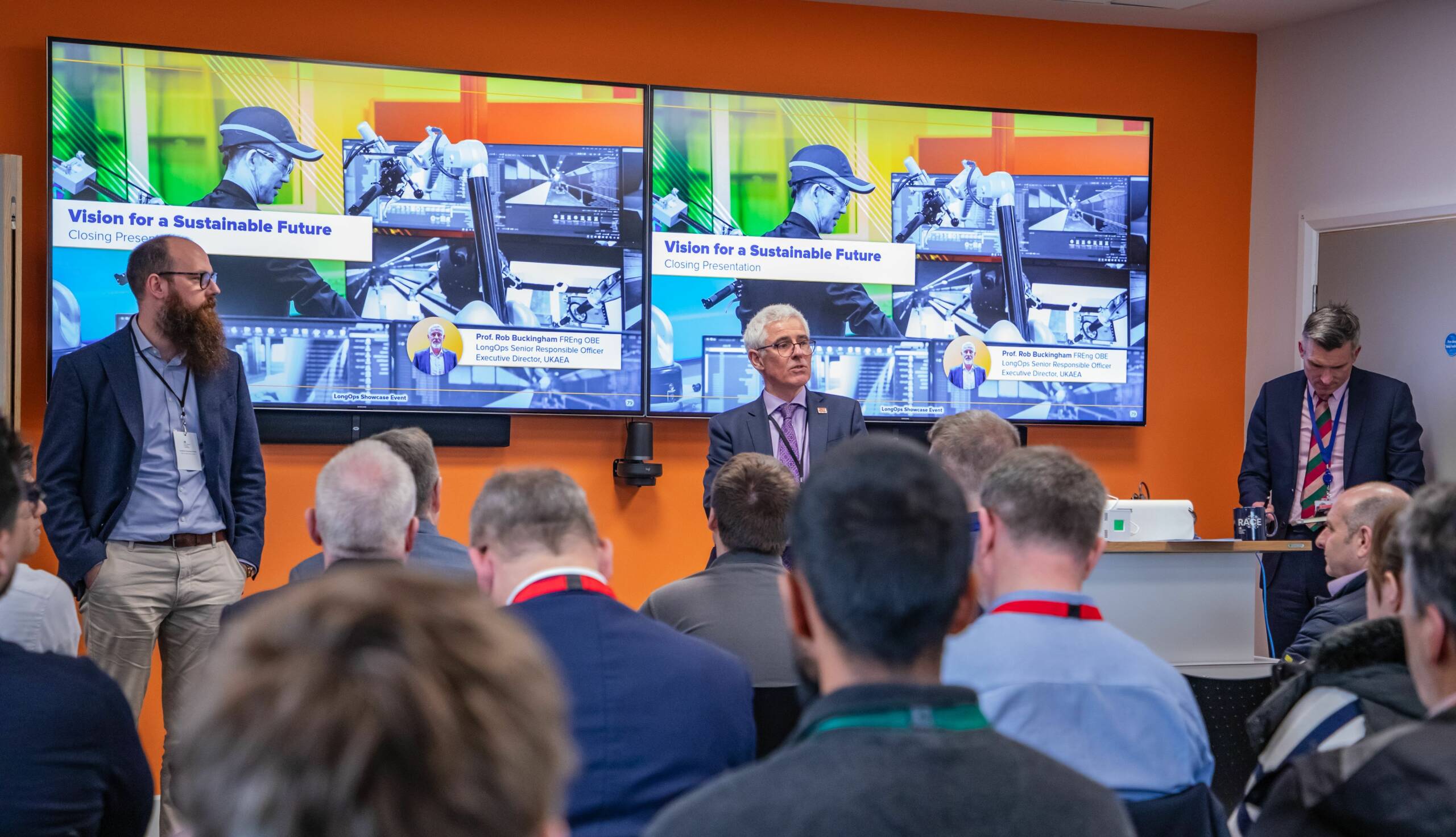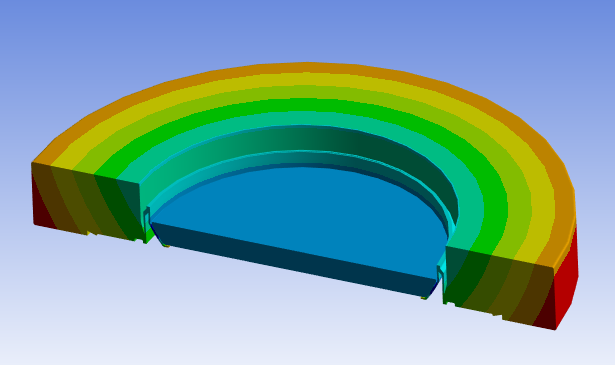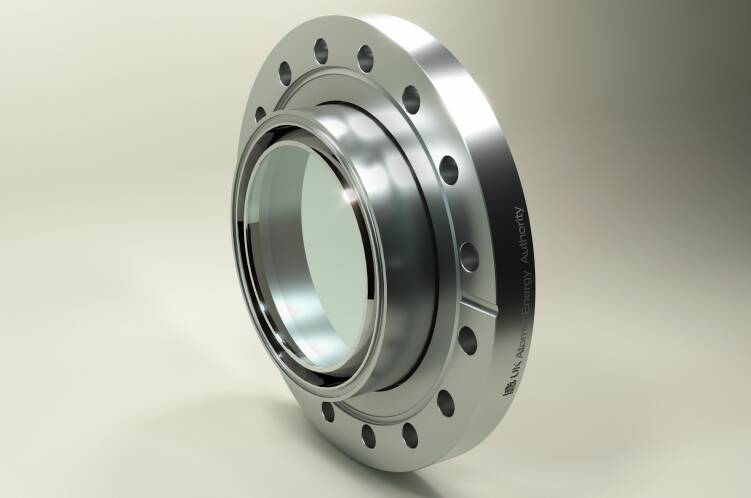This 3.5-year research collaboration has been funded equally by UK Research and Innovation (UKRI), the UK’s Nuclear Decommissioning Authority (NDA) and Japan’s Tokyo Electric Power Company (TEPCO). UKAEA’s Remote Applications in Challenging Environments (RACE) led the project, design strategy and delivered new robotic capabilities with global potential.
For more information about the LongOps project, please visit the website here.
One of the capabilities developed through the project is the Haptic Training Simulator. It is a training tool for robotics operators working at robotics projects in challenging environments including JET, Sellafield and Fukushima. The simulator provides a low-cost and low-risk environment for robot operators to develop their skills on haptic devices. To learn more about the haptic devices, watch the video below.
Since 2021, Britain and Japan have embarked on a research and technology development project called LongOps to help deploy remote handling technologies in nuclear decommissioning and aspects of fusion energy.
Since then, it has formed a world-leading alliance which has successfully developed new robotics and artificial intelligence technologies that can be applied to both fusion research and to decommissioning nuclear facilities in Japan and the UK.
RACE, the UKAEA’s centre for Remote Applications in Challenging Environments, has revealed the game-changing technologies developed for the LongOps project, inviting project stakeholders, industry and academia to the LongOps Showcase Event, held on 19th & 20th March in Culham Campus, Abingdon.
The 2-day event programme included:
LongOps overview presentations
Technology deep dive presentations on Architecture & Standards, Sensing & Perception, Long-Reach Manipulators, Haptic User Interfaces and Next Generation Digital Mock-Ups
Technology demonstrations
Suppliers stand showcasing the work of project suppliers
Networking session to discuss the vision for a sustainable future


More information on the UKAEA Special Techniques Group
The challenges of manufacture for fusion energy include unusual materials, and extremes of pressure and temperature. Similar challenges are shared in many academic and industrial applications.
Using the expertise gained in the field of fusion research, the UKAEA Special Techniques Group frequently collaborates with other sectors such as aerospace, beam-line science and high-power laser science to provide solutions to their manufacturing challenges.
It has developed an excellent reputation for producing high-performance optical viewports for vacuum applications such as fusion energy and quantum physics research. UKAEA Special Techniques Group’s diffusion bonding process allows the precision assembly and high integrity joining of optical materials like fused silica, quartz, sapphire, and diamond to a variety of metals such as stainless steel and titanium.
Optical viewports developed by the Group have such optical clarity that lasers can be applied through the viewports, into an ultra-high pressure vacuum environment, to manipulate atoms at a quantum level.
UKAEA collaborated with Atkins to develop new modelling tools to optimise viewport designs and with Frazer Nash Consultancy to use Bayesian optimisation techniques to evaluate viewport designs.
As a result of Project Solace, the UKAEA Special Techniques Group have launched a standardised range of new optical viewports that cater to popular geometries. A selection of available viewports can be found online
The £12M UK-Japanese robotics project, aimed to support delivery of faster, safer and more cost-effective decommissioning at TEPCO’s Fukushima Daiichi reactors in Japan and at Sellafield Ltd in the UK, using long-reach robotic arms. The name ‘LongOps’ refers to both the long period of the operations and the long-reach booms required.
Since 2021, Britain and Japan have embarked on a research and technology development project called LongOps to help deploy remote handling technologies in nuclear decommissioning and aspects of fusion energy.
Since then, it has formed a world-leading alliance which has successfully developed new robotics and artificial intelligence technologies that can be applied to both fusion research and to decommissioning nuclear facilities in Japan and the UK.
RACE, the UKAEA’s centre for Remote Applications in Challenging Environments, has revealed the game-changing technologies developed for the LongOps project, inviting project stakeholders, industry and academia to the LongOps Showcase Event, held on 19th & 20th March in Culham Campus, Abingdon.
The 2-day event programme included:
LongOps overview presentations
Technology deep dive presentations on Architecture & Standards, Sensing & Perception, Long-Reach Manipulators, Haptic User Interfaces and Next Generation Digital Mock-Ups
Technology demonstrations
Suppliers stand showcasing the work of project suppliers
Networking session to discuss the vision for a sustainable future
